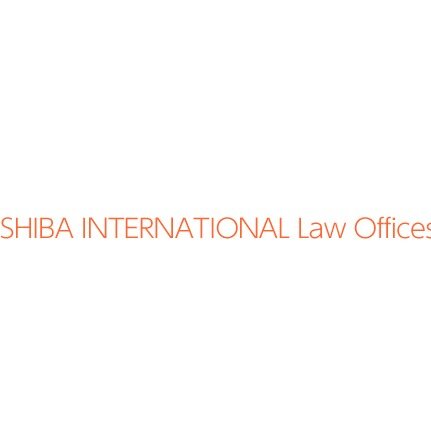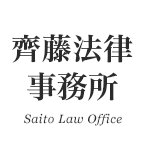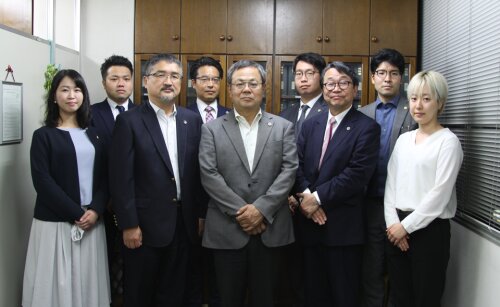Best ADR Mediation & Arbitration Lawyers in Japan
Share your needs with us, get contacted by law firms.
Free. Takes 2 min.
Or refine your search by selecting a city:
List of the best lawyers in Japan
About ADR Mediation & Arbitration Law in Japan
Alternative Dispute Resolution (ADR) in Japan, including mediation and arbitration, represents a significant means of resolving disputes outside traditional court systems. ADR is characterized by its flexibility, confidentiality, and efficiency, providing parties with a platform to resolve disagreements amicably. In Japan, ADR has gained popularity due to its ability to provide tailored solutions, particularly through arbitration, which involves a neutral third party making a binding decision, and mediation, where a mediator assists parties in reaching a mutual agreement.
Why You May Need a Lawyer
Engaging a lawyer in ADR processes in Japan can offer several advantages. Lawyers can provide expert guidance on ADR procedures, ensure that both parties understand their rights, and help negotiate terms or settlements. Common scenarios requiring legal assistance include commercial disputes, contractual disagreements, employment issues, and even personal matters like divorce or family disputes, where ADR can offer a less adversarial resolution pathway compared to litigation. Legal expertise is crucial in navigating these processes to protect your interests effectively.
Local Laws Overview
ADR in Japan is shaped by several key legal frameworks. The Arbitration Act, modeled after the UNCITRAL Model Law, governs arbitration in Japan and provides structure for both domestic and international arbitration. The Civil Conciliation Act underpins mediation and outlines procedures for resolving civil disputes through conciliation. These laws emphasize confidentiality, the autonomy of parties, and enforceability of awards and agreements. Understanding these foundational laws is essential for anyone seeking to engage in ADR, facilitating smoother and legally compliant dispute resolution processes.
Frequently Asked Questions
1. What is the difference between mediation and arbitration?
Mediation involves a neutral third-party facilitator helping parties reach a voluntary agreement, while arbitration involves a neutral arbitrator issuing a binding decision.
2. Is ADR legally binding in Japan?
Arbitration decisions are binding and enforceable under Japanese law, similar to court judgments, while agreements reached through mediation require parties' consent to be binding.
3. Can anyone participate in ADR mediation and arbitration?
Yes, ADR processes are generally accessible to individuals and businesses, provided all parties consent to the ADR process.
4. How long does the ADR process take in Japan?
The duration varies depending on the case complexity, with mediation typically resolved faster than arbitration, which might take several months to reach a decision.
5. What are the costs involved in ADR?
Costs can vary widely, including fees for mediators or arbitrators, administrative fees, and legal representation costs, but ADR is often less costly than litigation.
6. Are ADR sessions confidential in Japan?
Yes, ADR processes in Japan are confidential, protecting the privacy of the parties and the sensitive information disclosed during proceedings.
7. How is an arbitrator or mediator selected?
Parties can mutually agree on an arbitrator or mediator, or they might opt to have one appointed by an institution if they cannot reach consensus.
8. Can a lawyer represent me during ADR?
Yes, having legal representation during ADR is permitted and can be beneficial, providing expertise and strategic advice during proceedings.
9. What happens if a party does not comply with an ADR agreement?
For arbitration, an arbitration award is enforceable in court. For mediation, enforcement depends on the agreement terms; breach might lead to litigation or further arbitration.
10. Is ADR suitable for all types of disputes?
While ADR is versatile, it may not suit all disputes, particularly those requiring a public trial or involving authoritative legal precedents.
Additional Resources
Individuals seeking more information on ADR in Japan can consult several resources. The Japan Commercial Arbitration Association (JCAA) provides comprehensive resources on arbitration, while the Japan Federation of Bar Associations offers guidance on mediation. Governmental resources, such as those provided by the Ministry of Justice, can also clarify legal processes and available support services.
Next Steps
If you find yourself in need of ADR legal assistance in Japan, consider the following steps: Firstly, assess the nature of your dispute and determine whether ADR is a suitable avenue. Next, seek legal counsel from a lawyer experienced in ADR to guide you through the complexities of the process. They can assist in mediator or arbitrator selection, representation, and ensuring compliance with Japanese legal standards. Finally, engage with reputable ADR institutions in Japan to initiate proceedings appropriately, maximizing the benefits of this alternative dispute resolution approach.
Lawzana helps you find the best lawyers and law firms in Japan through a curated and pre-screened list of qualified legal professionals. Our platform offers rankings and detailed profiles of attorneys and law firms, allowing you to compare based on practice areas, including ADR Mediation & Arbitration , experience, and client feedback.
Each profile includes a description of the firm's areas of practice, client reviews, team members and partners, year of establishment, spoken languages, office locations, contact information, social media presence, and any published articles or resources. Most firms on our platform speak English and are experienced in both local and international legal matters.
Get a quote from top-rated law firms in Japan — quickly, securely, and without unnecessary hassle.
Disclaimer:
The information provided on this page is for general informational purposes only and does not constitute legal advice. While we strive to ensure the accuracy and relevance of the content, legal information may change over time, and interpretations of the law can vary. You should always consult with a qualified legal professional for advice specific to your situation.
We disclaim all liability for actions taken or not taken based on the content of this page. If you believe any information is incorrect or outdated, please contact us, and we will review and update it where appropriate.
Browse adr mediation & arbitration law firms by city in Japan
Refine your search by selecting a city.
















